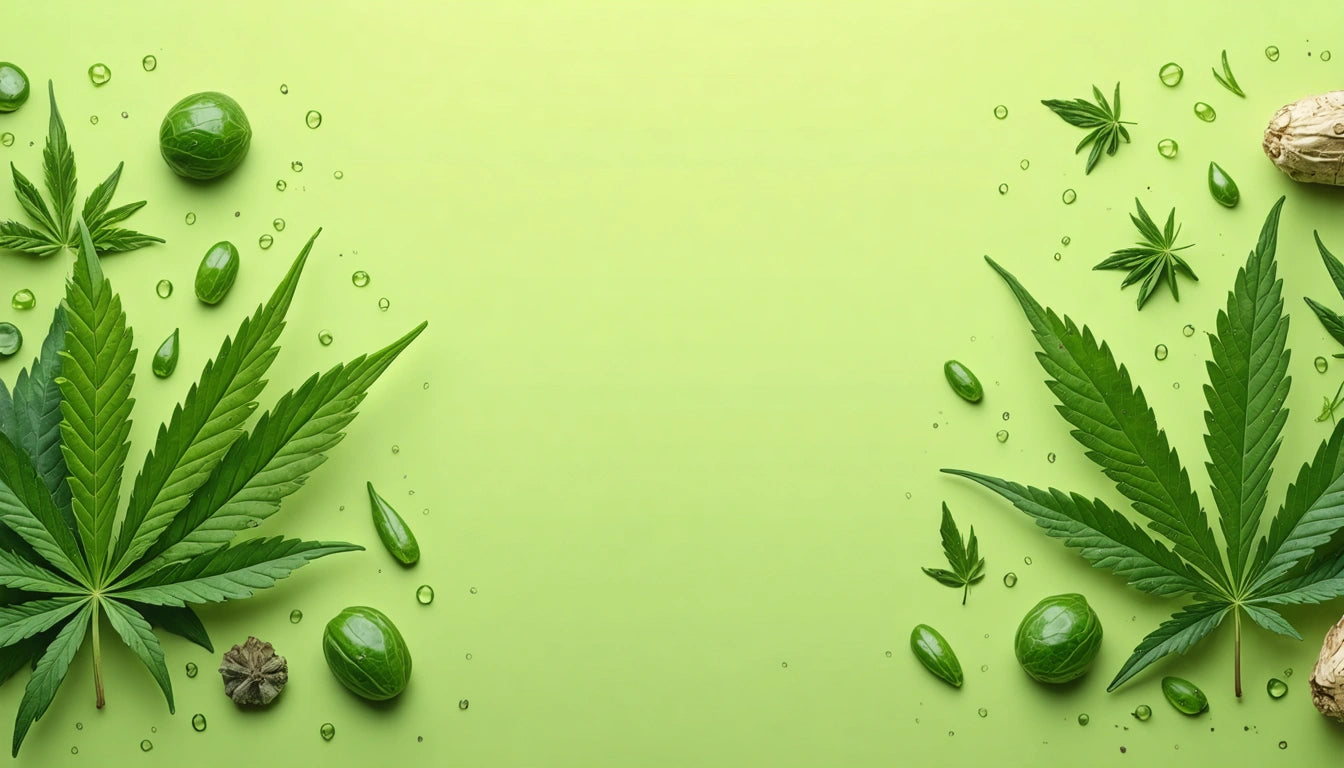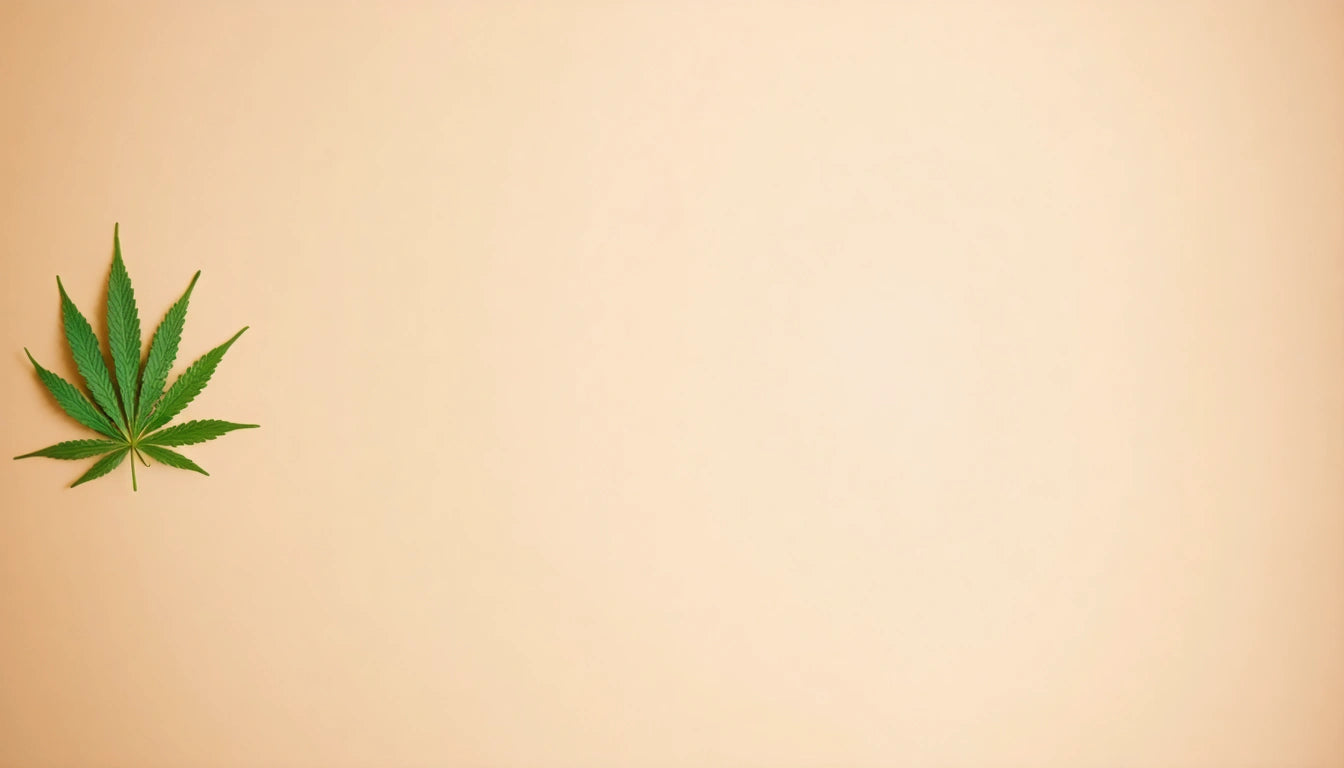Can CBD Get You High? Debunking Myths and Understanding Effects
CBD has surged in popularity as a wellness supplement, but confusion persists about its effects. Many consumers wonder, "Does CBD make you high?" or "Can CBD get you high like THC?" This comprehensive guide addresses these questions and explores the science behind CBD's interaction with the human body.
Understanding CBD and Its Effects
Cannabidiol (CBD) is one of over 100 cannabinoids found in the cannabis plant. Unlike its cousin THC (tetrahydrocannabinol), CBD does not produce intoxicating effects. This fundamental difference stems from how each compound interacts with the body's endocannabinoid system.
CBD primarily works by influencing receptors without directly binding to CB1 receptors in the brain that create the "high" sensation. Instead, it modulates various bodily systems, potentially offering therapeutic benefits without altering consciousness.
CBD vs. THC: Key Differences
The question "does THC or CBD get you high" has a clear answer: THC is the psychoactive component responsible for cannabis's intoxicating effects, while CBD is non-intoxicating. Understanding the interaction between CBD and THC helps clarify their distinct properties:
- THC directly activates CB1 receptors, creating euphoria and altered perception
- CBD has a low affinity for CB1 receptors and doesn't cause intoxication
- CBD may actually moderate THC's psychoactive effects
- Both compounds offer potential therapeutic benefits through different mechanisms
Types of CBD Products and Their Effects
Full-Spectrum CBD
A common question is "does full-spectrum CBD make you high?" Full-spectrum products contain all cannabis plant compounds, including trace amounts of THC (typically <0.3% in legal products). While this minimal THC content isn't enough to cause intoxication in most people, sensitive individuals might notice subtle effects.
Broad-Spectrum CBD
Broad-spectrum CBD contains multiple cannabinoids and terpenes but has THC removed. This option provides the potential benefits of the "entourage effect" without THC's influence.
CBD Isolate
CBD isolate is pure cannabidiol with all other compounds removed. The answer to "can you get high from CBD" isolate is definitively no, as it contains zero THC.
When selecting products, safety should be paramount. Our child-resistant packaging solutions help ensure CBD products remain secure and inaccessible to children while maintaining compliance with regulations.
Factors Affecting CBD Experiences
Several variables influence how individuals respond to CBD:
- Dosage: Higher doses may produce more noticeable effects
- Individual biology: Endocannabinoid systems vary between people
- Consumption method: Inhalation, sublingual, and oral ingestion have different onset times and durations
- Product quality: Third-party tested products ensure labeled potency and purity
These factors explain why experiences differ and why some might incorrectly assume CBD has psychoactive properties. Exploring the effects and uses of CBD products can provide deeper insights into these variables.
Common Misconceptions About CBD
Myth: CBD Makes You Hallucinate
The question "does CBD make you hallucinate" or "can CBD make you hallucinate" reflects a common misconception. CBD does not cause hallucinations or significant alterations in perception. These effects are associated with psychedelic compounds, not CBD.
Myth: CBD Affects Libido
Another misconception asks "does CBD make you hornier." Research doesn't support CBD directly enhancing libido, though reduced anxiety and improved wellbeing might indirectly benefit intimate experiences.
Myth: CBD Products Like Candles Cause Intoxication
Questions like "do CBD candles make you high" demonstrate confusion about CBD absorption. Aromatic CBD products don't deliver sufficient cannabinoids to the bloodstream to produce systemic effects.
Safety Considerations When Using CBD
While CBD is generally well-tolerated, users should be aware of potential interactions and considerations:
- CBD may interact with certain medications by affecting liver enzymes
- Some users report side effects like drowsiness, dry mouth, or changes in appetite
- CBD might temporarily affect blood pressure
- Questions about whether "does CBD affect potassium levels" highlight the need for medical consultation before use, especially for those with health conditions
Understanding CBD uses and interactions is crucial for safe consumption.
Navigating the Future of CBD Consumption
As research evolves, our understanding of CBD's effects continues to expand. Current evidence strongly indicates that CBD doesn't cause intoxication like THC. For consumers seeking clarity on whether CBD will get them high, the scientific consensus provides reassurance: CBD products with minimal or no THC won't produce a "high" sensation.
When exploring CBD options, prioritize products with clear labeling, third-party testing, and appropriate safety features. Understanding the differences between cannabinoids helps consumers make informed choices aligned with their wellness goals without unwanted psychoactive effects.











Leave a comment
All comments are moderated before being published.
This site is protected by hCaptcha and the hCaptcha Privacy Policy and Terms of Service apply.